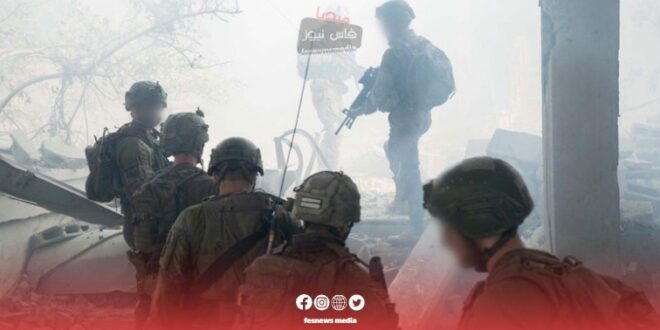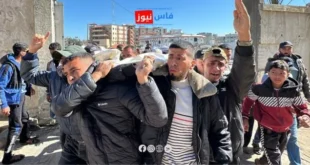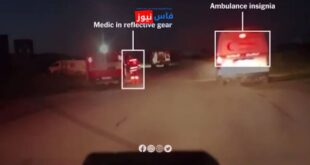The Israeli military announced the death of eight more soldiers in the Gaza Strip on Saturday, where the war between Israel and the Palestinian resistance movement Hamas has been raging for over eight months.
On the diplomatic front, hopes for a ceasefire seem to be fading due to the contradictory demands of Israel and Hamas, leaving little chance of realizing the plan announced by U.S. President Joe Biden at the end of May.
As residents reported bombardments and clashes between Israeli forces and Palestinian fighters in Rafah, the large city in southern Gaza and its environs, the Israeli army said eight soldiers had been killed “during an operational activity in the south” of the Palestinian territory.
Asked about the circumstances of their deaths, the army said their armored vehicle had exploded in the Rafah area.
Israel launched a ground operation on the city of Rafah on May 7, drawing widespread international condemnation over fears for the fate of the civilian population massed in the city after being largely displaced by fighting elsewhere.
Since the start of the ground operation in the rest of the Gaza Strip on October 27, 306 Israeli soldiers have been killed – including the eight killed on Saturday, one of the worst daily tolls for the Israeli military.
AFP TV footage showed deserted streets in Rafah, a city facing a major humanitarian crisis like the rest of the territory. Famine threatens the Gaza Strip, where 75% of the roughly 2.4 million residents have been displaced by the war, according to the UN.
As Muslims elsewhere prepare to celebrate the major Muslim holiday of Eid al-Adha starting Sunday, Palestinians in Gaza are lamenting the multiple shortages of essential goods in the besieged territory.
“In previous years (for Eid), we would prepare sweets, new clothes for the children, or buy (…) meat, fish and other delicious foods,” recalls Asmaa al-Masri, a resident of Jabaliya (north) who has been displaced to nearby Beit Hanoun.
The war was triggered on October 7 by an attack launched by Hamas from Gaza on southern Israel, which killed 1,194 people, mostly civilians, according to an AFP tally based on official Israeli data. Of 251 people abducted, 116 are still being held hostage in Gaza, including 41 who have died, according to the army.
In retaliation, Israel launched a large-scale offensive in Gaza that has killed 37,296 people, mostly civilians, according to data on Saturday from the Hamas-run health ministry in Gaza.
On the sidelines of the G7 summit concluding Saturday in Italy, Biden blamed Hamas for blocking the ceasefire offer on the table.
“I submitted a proposal approved by the Security Council, the G7, the Israelis, and the main obstacle at this stage is Hamas refusing to sign, even though they proposed something similar,” Biden said on Thursday.
The ceasefire plan announced by the U.S. president, Israel’s main ally, on May 31 envisages in an initial phase a six-week truce accompanied by an Israeli withdrawal from densely populated areas of Gaza, the release of some hostages held in Gaza and the release of Palestinians imprisoned by Israel.
Biden presented this plan as emanating from Israel. But Prime Minister Benjamin Netanyahu deemed it incomplete, reaffirming his government’s determination to pursue the war until Hamas’ defeat and the liberation of all hostages.
The only truce reached so far, in late November, lasted a week and allowed for the release of 105 hostages, including 80 Israelis and dual nationals, exchanged for 240 Palestinians detained by Israel.
Hamas has transmitted to the mediating countries – Qatar, Egypt and the United States – an initial response, which according to a source close to the discussions contains “amendments” to the plan, including “a timetable for a permanent ceasefire and the total withdrawal of Israeli troops from Gaza.” Demands Israel has always rejected.
Fears of the conflict spreading beyond the Gaza Strip have heightened in recent days. The Lebanese Islamist movement Hezbollah, an ally of Hamas, said its intense strikes on Israeli territory since Wednesday were in retaliation for Israel’s assassination of one of its commanders.
On Saturday again, the belligerents exchanged new fire at the border, with a Palestinian movement reporting one fatality in its ranks from an Israeli strike.
During a new Mideast tour this week to promote the ceasefire plan, U.S. Secretary of State Antony Blinken said “the best way” to help resolve the violence between Hezbollah and Israel was “to resolve the conflict in Gaza and get a ceasefire.”
 فاس نيوز ميديا جريدة الكترونية جهوية تعنى بشؤون و أخبار جهة فاس مكناس – متجددة على مدار الساعة
فاس نيوز ميديا جريدة الكترونية جهوية تعنى بشؤون و أخبار جهة فاس مكناس – متجددة على مدار الساعة








 China Assures EU: We Have Tools to Offset Economic Turbulence Amid Tensions with Washington
China Assures EU: We Have Tools to Offset Economic Turbulence Amid Tensions with Washington



